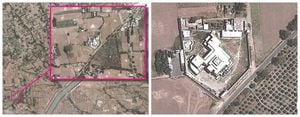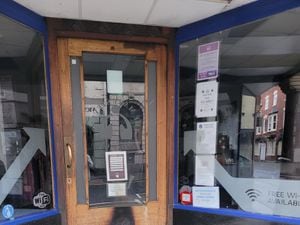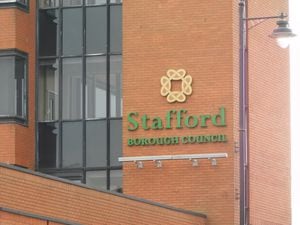JAILED: £2m tax dodging businessman who built Buckingham Palace-style mansion
A tax dodger who built a £2.3m Buckingham Palace-style mansion with its own cinema, library, and servants' quarters, has been jailed for a decade after he failed to pay back the whopping £2 million he owed.

Mohammed Suleman Khan was handed a four year sentence in April 2014 after West Midlands Police discovered he had cheated the taxman out of around £450,000, after claiming he earned less than £40,000 a year in a bid to avoid tax and national insurance payments.
In addition to the jail sentence Khan was ordered to pay back the cash by October 10, 2015, or face an extra 10 years in prison.

When Khan failed to meet the deadline the 43-year-old was brought back before the court, where Birmingham magistrates yesterday imposed the 10 year sentence on him.
Khan was also found to still be liable for the £2,209,090.00, which is growing by a staggering £484.18 a day in interest.
Efforts are now underway to seize the assets of the 'businessman'.
Detective Inspector Jonathan Jones, from the ROCU, said; "The court's findings have proved to be a punishing blow for Khan who has been found to have deliberately swerved tax and national insurance payments.
"Every other hard working person has to pay these bills which fund essential services like the NHS. For some reason Khan though he was above the laws which bind us all."
The case dates back to 2011 when Khan was arrested from his gated Edgbaston residency on suspicion of money laundering.
The lengthy police probe - sparked by the concerns of local people - found evidence of tax and national insurance evasion.
Detectives and HM Revenue and Customs officials looked into the finances of the Birmingham born debt collector and businessman who claimed to have an annual income of no more than £40,000.
But despite finding 13 paper wraps banks use to secure £1,000 bundles all bearing the same date stamp, and after scrutinising phone and computer records, there were limited financial records leading investigators to believe that Khan only used cash and had few assets.
Determined to uncover the truth, detectives worked with the social policy research charity, the Joseph Rowntree Foundation, to compare cost of living fees with his lifestyle and established that to maintain his lavish standard of living would require earnings in excess of £1 million over the nine year period between 2001 and 2012.
The inquiry also uncovered plans for a house the size of Buckingham Palace in Ghorghusti in the Attok region of Pakistan.
The blueprints showed the mansion which boasted its own cinema, library, servants' quarters and even a guard house for a private security team.
Experts estimated that construction would have cost £2.3 million although there was no official record of ownership.
Talking about their bid to return the cash to public finances, James Francis, from Crown Prosecution Service's Proceeds of Crime unit, said: "Just over one year ago CPSPOC and ROCU formed a unique team, placing specialists side by side to work on complex asset recovery cases with the aim to see justice done quickly and efficiently by reducing cost and sharing information.
"The results have been phenomenal so far and whilst Mr Khan has failed to pay his sum, the activation of the default sentence is just the start of a process designed to strip him of his criminal gains.
"This success should serve as a warning to others. We'll make sure crime doesn't pay. We will pursue so-called 'crime lords' and take back their ill-gotten gains for the benefit of local people."





